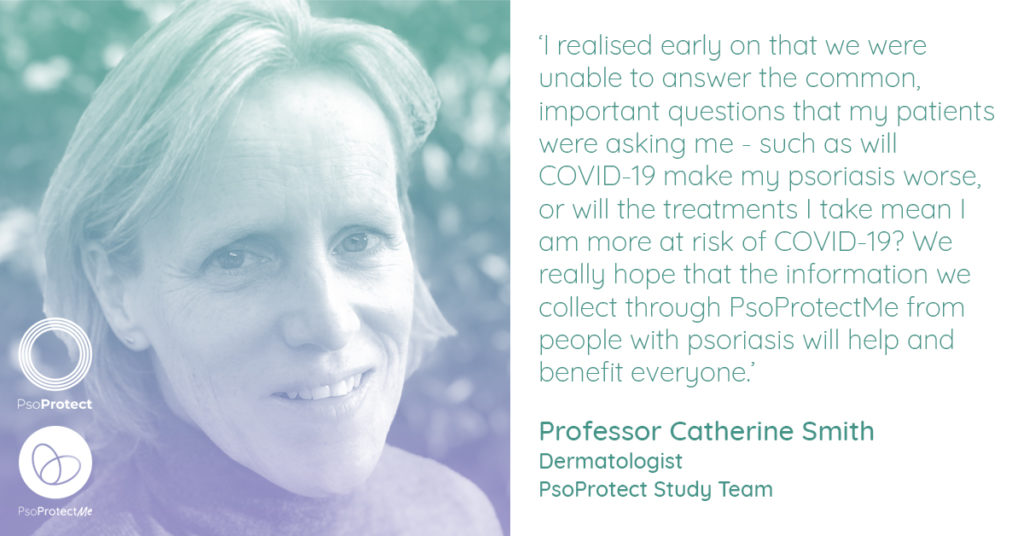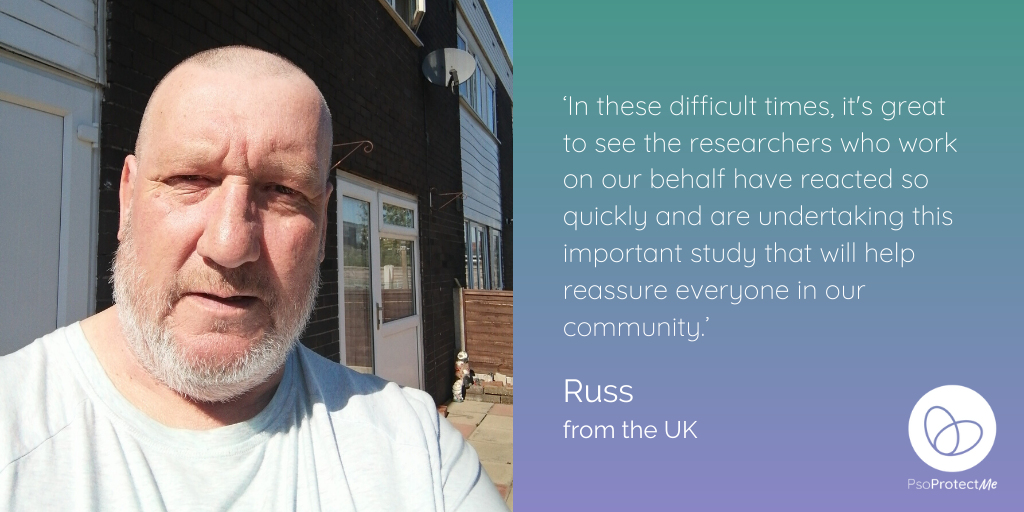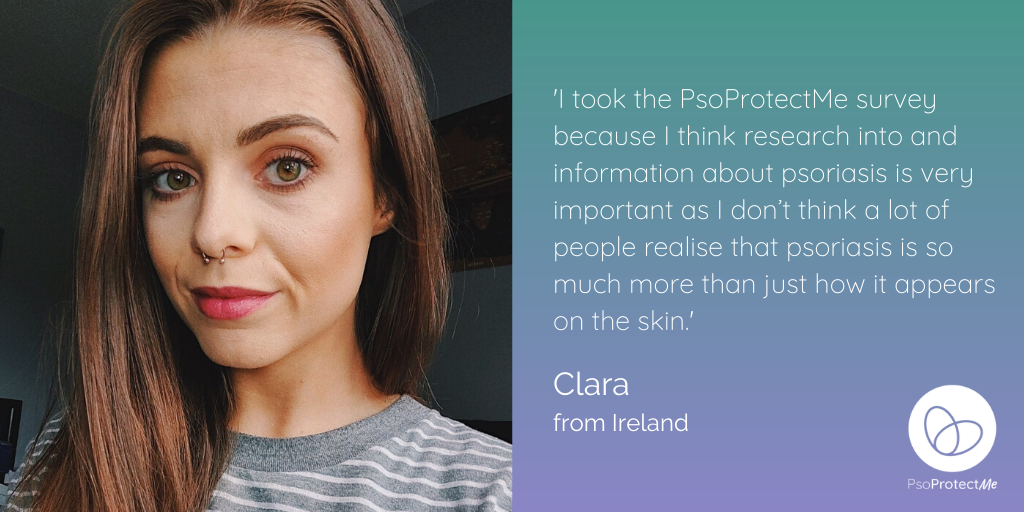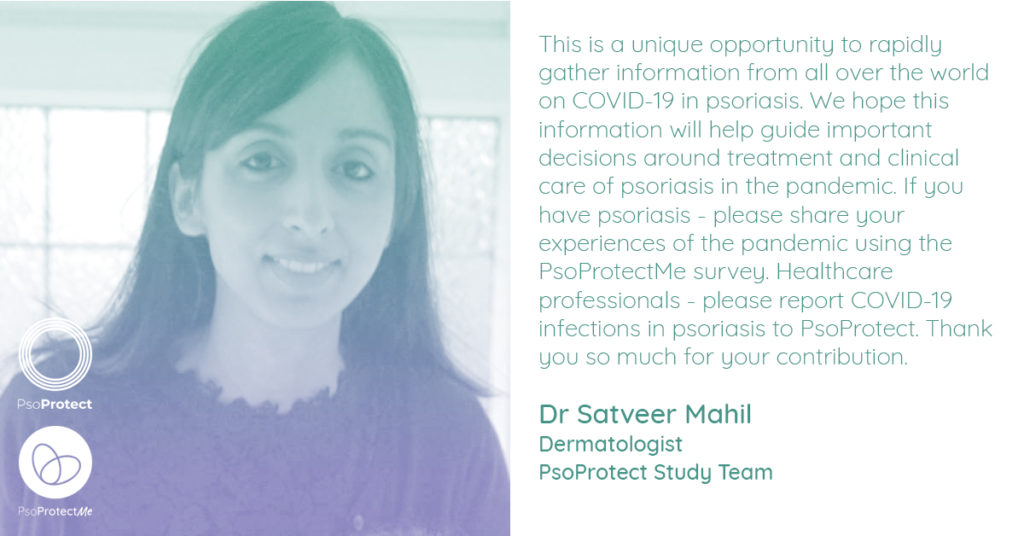News
Jul 30, 2020
PsoProtectMe – the survey looking to understand how COVID-19 affects people with psoriasis
The COVID-19 pandemic has impacted nearly every facet of our lives in unprecedented ways. For people with psoriasis, the pandemic has likely resulted in major shifts in medication and healthcare practices, social behaviours and emotional wellbeing. We launched the PsoProtectMe survey on 4th May 2020 to begin to understand first-hand some of these changes.

The PsoProtectMe survey (psoprotectme.org) is for anyone with psoriasis, whether or not you have had COVID-19. The survey seeks to understand your experiences and behaviours during the pandemic. If you have had COVID-19, we ask additional questions about how COVID-19 has affected you, including your symptoms, treatments and whether you have fully recovered (please complete the survey at least 2 weeks after your first symptoms). The survey takes approximately 10 minutes and is now available in English, Italian, Spanish, Portuguese, Chinese, Japanese, Polish and French.
We are encouraging everyone with psoriasis, of any age or background, and no matter what other health conditions you may have or treatments you may be taking, to participate. This includes people who have psoriatic arthritis as well as psoriasis.

More than 2000 people with psoriasis from all over the world have already completed the PsoProtectMe survey, and we have released a summary of some of the data gathered so far on our website (psoprotectme.org/current-data). As more surveys are completed, we hope to be able to draw more robust conclusions, which will increase our understanding both for now and for the future. We need everyone to add their voice, as it is really important that we collect information that is representative of everyone with psoriasis.

The survey was designed by our study group of clinicians, scientists and patient representatives. This project is supported by an expert international scientific advisory board and multiple international professional and patient organizations, including the British Association of Dermatologists and the Psoriasis Association.
We have also set up a companion global registry called PsoProtect, for healthcare professionals to report outcomes of confirmed or suspected COVID-19 in people with psoriasis (www.psoprotect.org). In fact, if you have psoriasis and think you have had COVID-19, please encourage your GP or dermatologist to also fill out a PsoProtect case report form about your experience. That way we can collect both your perspective and your doctor’s perspective. We hope that the information collected in PsoProtect will advance our understanding of how factors such as psoriasis therapies and underlying health conditions affect outcomes in people with psoriasis who contract COVID-19.
Thank you for your valuable contribution and support – and please help to spread the word by joining us on Twitter, Facebook and Instagram @PsoProtect.

Psoriasis experts, Professor Catherine Smith and Dr Satveer Mahil of St John’s Institute of Dermatology in London introduce PsoProtectMe in this helpful video.